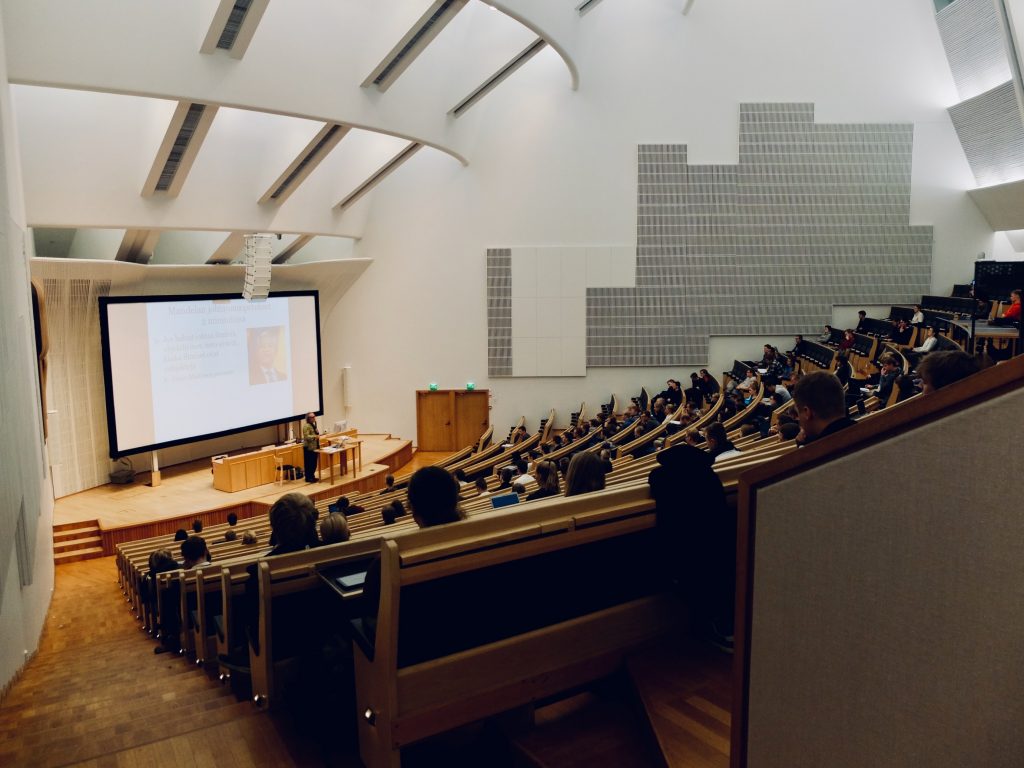This is a free essay sample available for all students. If you are looking where to buy pre written essays on the topic “Why Should College Be Free”, browse our private essay samples.
It’s not a secret that tuition costs for colleges have been rising faster than inflation for several years. It means that many students are amid massive student loan obligations. There is debate about why college should be free.
There is a rising movement to make college affordable to everyone. Some even propose free tuition in public and private colleges. However, tuition fees increase and make college increasingly difficult to afford for most people. Enormous college tuition makes it impossible for college students to pay for their college degrees.
In the aftermath of what many think is a crisis in education because of rising prices, there have been calls recently for free college tuition. Is it a good idea to make free colleges? Let’s consider the reasons why college should be free.
Are you exhausted? Do you need someone to write a well-crafted essay for you? Let EssayZoo take your worries away. We will write an awesome essay for you while you sit back and relax.
Five Questions Within the Debate
Five main themes remain in the middle of the debate about why college should be free. They are the issue of inequality, the burden of debt that it imposes on college students, its direct impact on the workforce’s future, the overall effect of having a post-secondary education on society, and finally, the importance of having an educated population to ensure economic growth.
The economic value of free colleges has become more significant now that nations are suffering from the consequences of the COVID-19 virus. Getting a free education can bring about major changes in the world by providing students with lifelong knowledge and skills.
A recent report released by the World Economic Forum (WEF) emphasizes the importance of post-secondary education in the global process of upskilling. It suggests large-scale investment in upskilling could potentially boost the world’s gross GDP by $6.5 trillion by 2030 and create 5.3 million jobs globally (WEF 2021).
Perna and Finney (2014) have developed the framework based on an analysis of cross-cases that examines the connection between policies and education attainment. They found that the nature of current policies and the state’s historical economic, demographic, and political c Mandell as the quality of the higher education system determine which state policies are required to improve attainment in education and close the gaps.
Said, offering free college is not a magic solution that can fix the current crisis in higher education.
Arguments For Why College Should Be Free
Here are a few reasons to support the argument why state colleges should be free to attend:
Improves Society
If people are educated, they can resolve problems more effectively. The American dream is all about breaking the chains of limitations. Sadly, a college education is not accessible for young adults in our country, making them lose hope of having a good future career.
In addition, people who have a degree can better comprehend the past of their country and the current economic situation. It means that they will be more likely to participate in the political process and help improve the country they live in.
In addition, as more people gain college access and are employed, the number of individuals for jobs with high skills rises. That means more people are expected to enter the workforce, which can help reduce the income gap between the middle, upper, and lower classes.
Help to Boost the Economy
Over $30,000 is the typical amount of debt students are expected to pay off after the day of graduation. A huge amount of debt usually will delay the purchase of a house or marriage. Buying cars and saving for retirement. Then, it delays the production of economic stimulation for graduates.
However, suppose students could graduate debt-free and immediately begin to save. In that case, they’d be able to start saving, earning, and spending. Consequently, creating a stimulus for the economy. There’s an increased demand for workers. Resulting in more jobs as the economic circle continues to spin around.

A Better-Educated Workforce
Morley Winograd, President of the Campaign for Free College Tuition, cites the economic and tax advantages of higher salaries earned by college graduates. “For government, it’s increased revenue,” stated Winograd. The higher a person’s earnings, the more likely they will pay taxes.
Furthermore, “the country’s economy gets stronger because the better the population and the more efficient it can compete globally.” Local economies also benefit from a higher-educated well-paid, and skilled workforce since those with higher incomes have more money to spend.
According to Harris, it is true that the ROI on the investment of a state in getting a free education can be significant. The benefits appear to at least twice the cost over the long term when we consider the higher college graduation rate and the income that goes together with it, compared to the expense and additional resources and funding which go into them.
Free College Would Produce a Skilled Workforce
The benefits of an educated population cannot be overemphasized. A college education is a way to “learn how to be a better learner. The Covid-19 epidemic has demonstrated the necessity of having the ability to learn new skills and keep upskilling in the face of rapid changes.“
The new performance standards and the new learning networks in post-industrial economies are expected to require people with more and better understanding, skills, and capabilities for entry-level positions and keep pace with the speed that lifelong learning is taking place (WEF 2021, 2021).
Computer technology could be able to automatize the processes of a company. However, it requires a higher degree of cognitive and non-cognitive skills to deliver the highest quality of services. College is thought to be the best base for these abilities to be ingrained into the person who will later enter the workforce.
Free College Would Reduce Social Problem
Education plays a crucial part in the evolution of a nation. Research shows that people without college degrees are more likely to be afflicted with a declining rate of marriage, an increase in the number of single parents, increasing death rates, and addiction to opioids.
Critical thinking and knowledge that post-secondary education imparts have a major impact on human capital. College education lowers the rate of crime and improves civic engagement. It is also known that increasing the quality and quantity of education increases productivity. Quality and number of schools directly improve productivity.
Equity And Equality
The biggest issue that many students have when college is the cost. While, on the surface, taking out loans for a student may appear like a feasible alternative, many students with low incomes must contribute to their family’s income but can’t afford to work.
Additionally, many of the most innovative minds come from low-income families. In addition, making state colleges be free to attend will profoundly affect economic growth and innovation.
Increased Workforce
With technological advancements, there is a change in the working. Automation is replacing most people with low skills. Automation is quickly spreading to jobs requiring repetition, such as back-office jobs.
But automation is not intended to replace all workers. Instead, the requirements of many economies are changing to require a better workforce that possesses strong analytical abilities. These skills can be learned and developed through education at a college. If more students could get a college education for free, The workforce would grow.
Additionally, workers will be mobile. In an economic slump, one industry and another rise to take their place. If more people were to go to schools and tailor their studies toward booming industries, the populace would be better prepared to adapt to economic change.

A Well-Educated Populace is Necessary for Discerning Political Participation
To decide whether the college system offers free tuition or not, we need to consider its effect on the nation in general. Republics and democracies need an educated populace to participate in democratic participation. Suppose people are voting on issues or members. In that case, an undergraduate college student can give them an understanding of history, a background of the system, and a knowledge of the root economic and social issues. That alone can be a powerful argument for why colleges should be free.
Free College Education Around the World
Getting free education advocates often point to the successes of other countries for the argument that why colleges should be free. Denmark, Norway, Sweden, Iceland, Mexico, Germany, and Finland are a few examples of countries that do not charge tuition. Education is seen as an investment into the nation’s long-term future instead of a freebie program. It is estimated that the United States spends about 1.36 percent of its GDP on post-education secondary. Finland invests 2.08 percent, Norway spends 1.96%, and Germany supports 1.35 percent.
Countries That Offer Free College
Many countries are aware that debt-free education can lead to positive results. So, they have created tuition-free schools. Getting a college degree is not that hard in many countries around the world. Apart from making college tuition free, they offer financial aid and college debt with relaxed conditions.
Here’s a look into some countries that offer education for free only for residents:
- Germany
- Austria (free for EU residents, but at a reduced cost for those who are not EU residents)
- Finland
- Czech Republic
- France
- Spain (free cost for EU residents, but at a reduced price for those who are not EU residents)
Final Words – Why College Should be Free
So, you got a clear idea of why college should be free. We need more educated citizens within our society. By making free colleges, everyone will have the chance to pursue their education. Although it could appear like a daunting endeavor, making college completely free is achievable by working together to make college completely free. Let’s get this done! What do you think? Do you believe that college should be cost-free?
Reference
- https://www.theguardian.com/education/2017/jul/07/tuition-fees-should-be-scrapped-says-architect-of-fees-andrew-adonis
- Barshay, J. (2019), Economists find free community college can backfire, https://hechingerreport.org/economists-find-free-community-college-can-backfire/
- Berman, J. (2021), Biden’s free-college proposals could boost economy by $160 billion — but it may still be a tough sell in Congress, https://www.marketwatch.com/story/bidens-free-college-proposals-could-boost-economy-by-160-billion-critics-say-it-would-cost-600-billion-11611250984
- Goldy-Brown, S. (2019), Student Loan Debt Statistics, https://www.studentdebtrelief.us/student-loans/student-debt-statistics/
- Cameron, Stephen V., and James J. Heckman. “The dynamics of educational attainment for black, hispanic, and white males.” Journal of Political Economy 109.3 (2001): 455-499.